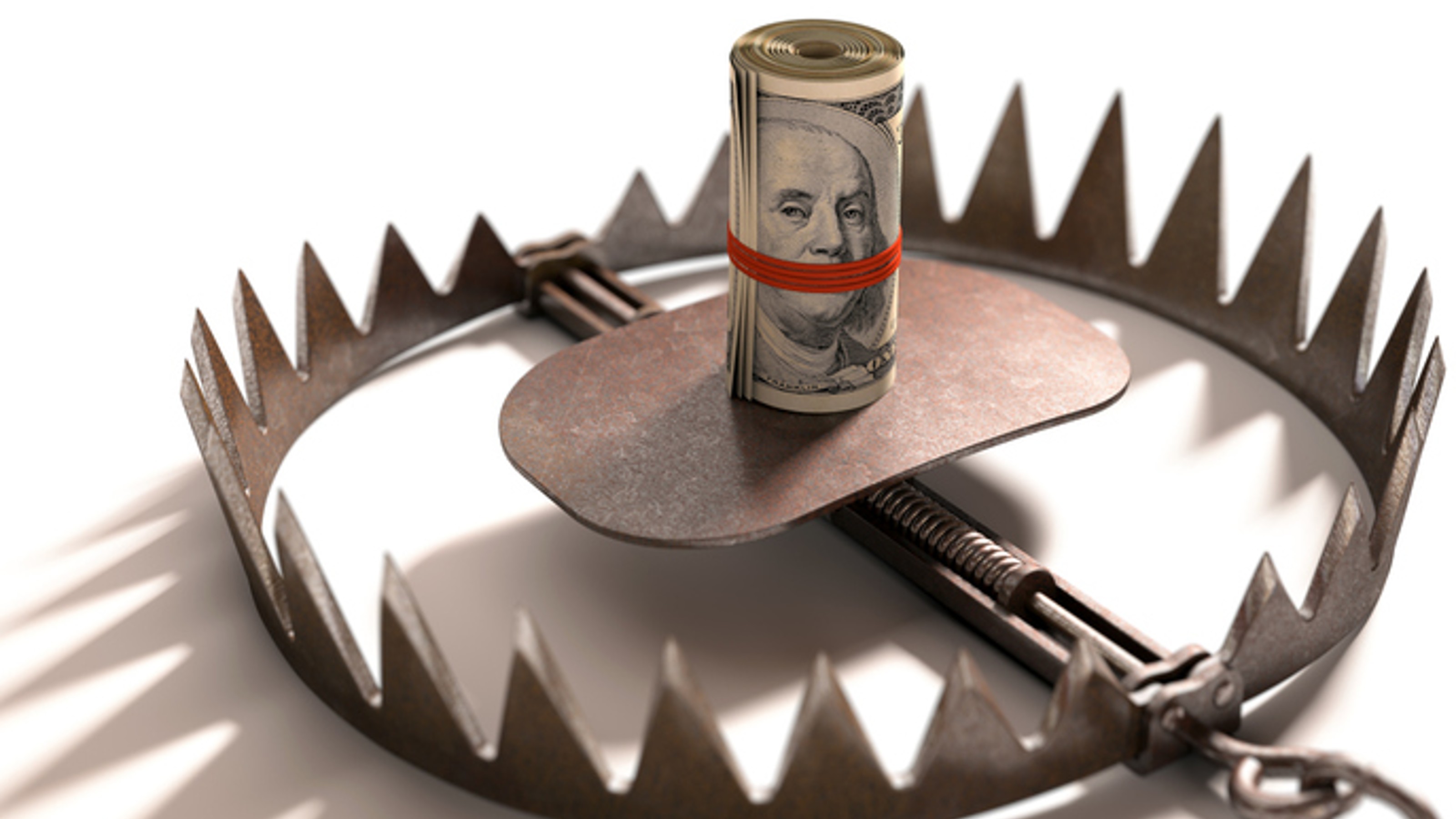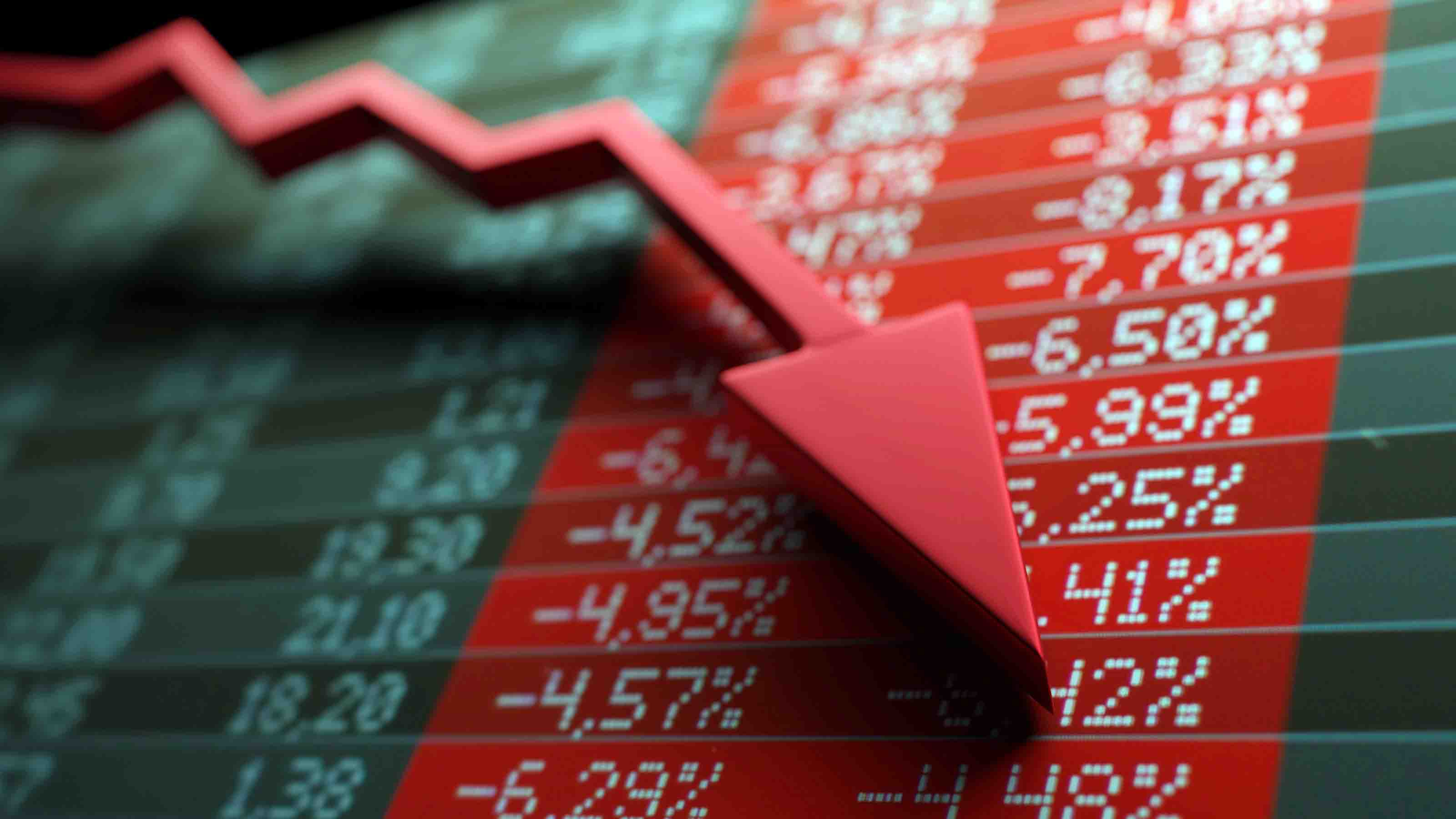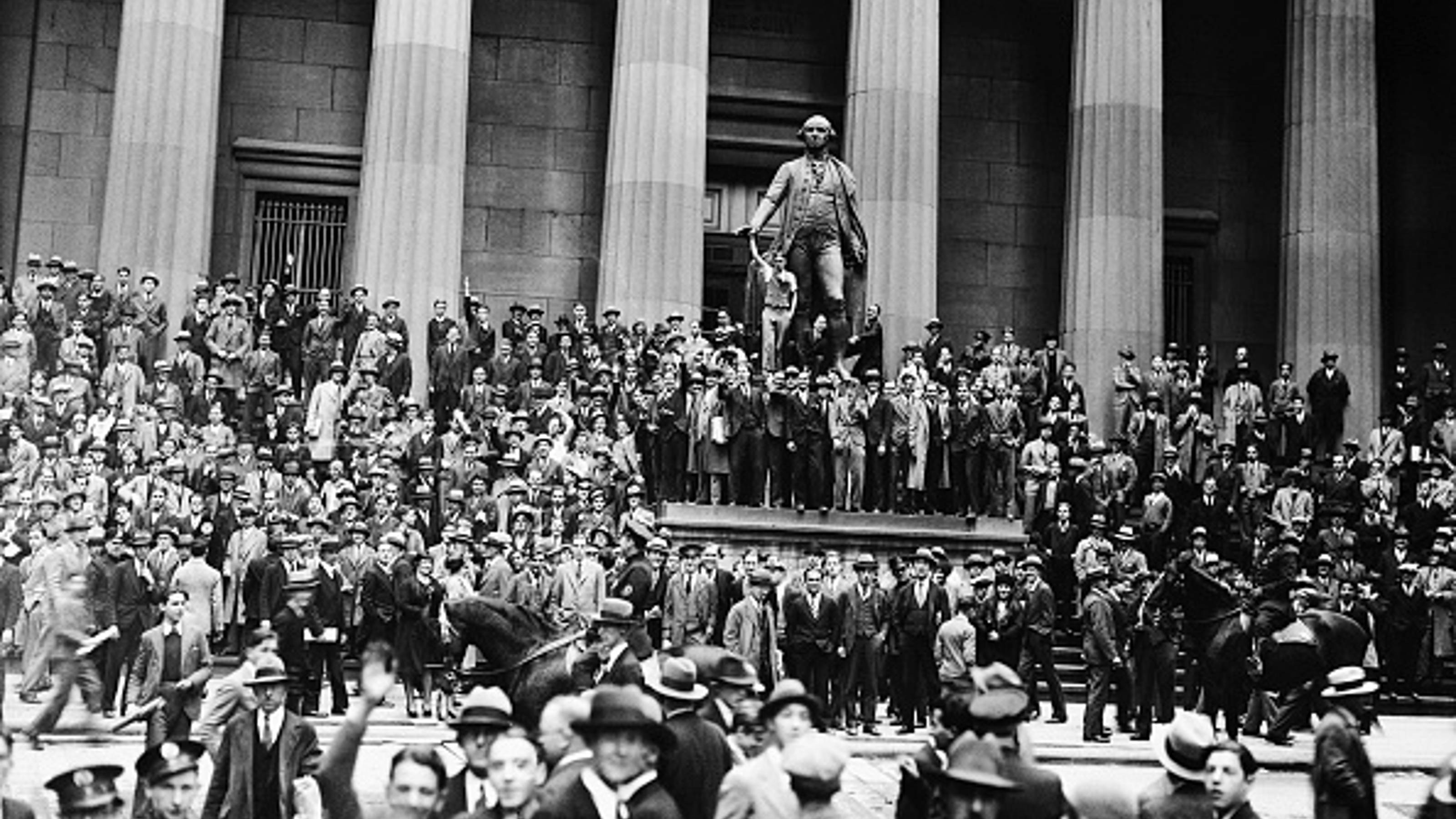How Often Bear Markets Occur and 7 Other Facts About Them
Bear markets can be terrifying, but they're normal, inevitable and – most importantly – they don't last forever.

Anne Kates Smith

Profit and prosper with the best of Kiplinger's advice on investing, taxes, retirement, personal finance and much more. Delivered daily. Enter your email in the box and click Sign Me Up.
You are now subscribed
Your newsletter sign-up was successful
Want to add more newsletters?

Delivered daily
Kiplinger Today
Profit and prosper with the best of Kiplinger's advice on investing, taxes, retirement, personal finance and much more delivered daily. Smart money moves start here.

Sent five days a week
Kiplinger A Step Ahead
Get practical help to make better financial decisions in your everyday life, from spending to savings on top deals.

Delivered daily
Kiplinger Closing Bell
Get today's biggest financial and investing headlines delivered to your inbox every day the U.S. stock market is open.

Sent twice a week
Kiplinger Adviser Intel
Financial pros across the country share best practices and fresh tactics to preserve and grow your wealth.

Delivered weekly
Kiplinger Tax Tips
Trim your federal and state tax bills with practical tax-planning and tax-cutting strategies.

Sent twice a week
Kiplinger Retirement Tips
Your twice-a-week guide to planning and enjoying a financially secure and richly rewarding retirement

Sent bimonthly.
Kiplinger Adviser Angle
Insights for advisers, wealth managers and other financial professionals.

Sent twice a week
Kiplinger Investing Weekly
Your twice-a-week roundup of promising stocks, funds, companies and industries you should consider, ones you should avoid, and why.

Sent weekly for six weeks
Kiplinger Invest for Retirement
Your step-by-step six-part series on how to invest for retirement, from devising a successful strategy to exactly which investments to choose.
What is a bear market, anyway?
Well, for one thing, a bear market is one of the scariest events equity investors regularly confront.
And yet, as unpleasant as they may be, steep and sustained drawdowns in stocks are an absolute fact of investing life.
Markets go through cycles; always have, always will.
It's also true that despite being miserable experiences, bear markets are not entirely all bad.
An irony of bear markets is that they're one of the exceedingly rare times when long-term retail investors can actually have an advantage over the pros.
Traders and tacticians are under constant pressure to do something, even as a receding tide lowers all boats. Contrast that with retail investors, who are luxuriously free from clients yelling at them all day.
Normies can just sit back and dollar-cost average into stocks at increasingly cheaper prices.
Most importantly, a patient long-term investor who is diversified in accordance with his or her age, stage in life and risk tolerance can not only wait out a bear market, but profit from it.
Remember: The market can be downright awful at times, but its long-term trend is always to the up and right.
Don't forget the old Wall Street saying: "You make your money in a bear market. You just don't know it at the time."
Folks these days are understandably focused on inflation, rising interest rates and the possibility of recession.
But a familiarity with the basics of bear markets should help investors better cope with the next bear market.
To that end, we've compiled the following facts to help answer the question, What is a bear market?

Why is it called a bear market?
It has nothing to do with the way bears sneak up on their prey and attack suddenly, in the same way that bear markets feast on investors.
Neither is it because bears are notorious for ransacking campsites and stealing provisions, in the same way bear markets can destroy your financial well-being.
Though both would be fitting.
Believe it or not, the term "bear market" originates with pioneer bearskin traders. The country's early traders would sell skins they'd not yet received – or paid for.
Because the traders hoped to buy the fur from trappers at a lower price than what they'd sold it for, "bears" became synonymous with a declining market.
There is, however, an alternative explanation, according to Wall Street lore: A bear attacks by swiping its claws downward, similar to the downward trend of a declining market.

What is a bear market, anyway?
First, let's look at what a bear market is not.
It's not when stock prices end lower in the majority of trading days within a 90-day period.
Neither is it a condition proclaimed by the National Bureau of Economic Research.
And it is certainly not when at least two major business publications proclaim a bear market on their magazine covers.
Rather, a bear market is when a broad market index, such as the S&P 500, falls 20% or more from its peak.
There still is some debate among market watchers about whether the downturn that lasted from July 16 to October 11, 1990, was officially a bear. The S&P fell 19.9% during that period.
And the 2018 correction that lopped 19.8% off the S&P 500 was within rounding distance of a bear market.
Since 1929, S&P 500's average bear-market decline stands at 33.5%, according to Dow Jones Market Data. The median drawdown comes to 33.2%.

How often do bear markets occur?
Since 1932, bear markets have occurred, on average, every 56 months (about four years and eight months), according to S&P Dow Jones Indices.
The Nasdaq Composite entered a bear market on March 7, 2022, when it closed 20% below its November 19, 2021, high.
The S&P 500, for its part, entered a bear market on June 13, 2022, when it finished the session more than 20% below its January 3, 2022, record close.
The Dow held out the longest, not entering a bear market until September 26, 2022, when it closed below 29,439.72.
All three major indexes eventually clawed their ways out of their bear markets, eventually setting new record highs.
Don't forget that the long-term trend for U.S. stocks has always been up and to the right.

What is least likely to cause a bear market?
A number of events can lead to a bear market: higher interest rates, rising inflation, a sputtering economy, military conflict or geopolitical crisis are among the usual suspects.
But which is the rarest?
Fortunately, military or geopolitical shocks to the market have been mostly fleeting.
Two of the longest downturns followed the attack on Pearl Harbor in 1941 (308 days) and Iraq's invasion of Kuwait in 1990 (189 days).
But the average time to the market bottom after such events, which also include the terrorist attacks on the U.S. in 2001 and the North Korean missile crisis of 2017, is 21 days, with a full recovery in 45 days, on average.

Bear markets don't automatically come with recessions
There are actually two types of bear markets: recessionary and non-recessionary.
Bear markets often precede or coincide with economic downturns, which is part of what makes them so scary.
Happily, there are almost as many instances of past bear markets in which stocks tanked but the economy did not.
Since 1928, 14 bear markets heralded or happened during recessions, notes Ben Carlson, director of institutional asset management at Ritholtz Wealth Management.
However, another 11 bear markets since 1928 had nothing to do with recession.
Surprise, surprise: Bear markets that occur outside of recessions tend to be shallower and shorter.

What was the worst bear market of all time?
Contrary to popular belief, the worst bear market on record was not the 2007-09 crash when the financial crisis ushered in the Great Recession.
Neither was it the tech wreck of 2000 when dot-com stocks collapsed.
The drawn-out decline from the start of 1973 through the fall of 1974 – during which the Arab oil embargo sent oil prices soaring, the so-called Nifty-Fifty stocks sank, and Richard Nixon resigned the presidency – doesn't take the cake either.
Rather, the bear market that began just ahead of Black Monday that precipitated the Crash of 1929 was the worst one to date.
The bear market from September 1929 to June 1932 resulted in an 86.2% loss for the S&P.
Those other historical examples aren't even close, with losses of 56.8% in 2007-09, 49.1% in 2000-02 and 48.2% in 1973-74.
Indeed, it took the market more than two decades to recover from the 1929-32 slump. Stocks didn't regain their prior peak until 1954.

How long do bear markets last?
Ask a random sample of investors and some folks might guess that it's a year or less. Others will figure it's a minimum of two years.
Regardless of duration, a bear market usually feels like it lasts forever.
And yet the average length of a bear market since 1929 is just 9.6 months, according to Ned Davis Research.
True, those months will be agonizing, but consider the bright side: Bears don't live as long as bulls. Indeed, since 1929, the average lifespan of a bull market is 2.7 years.

Good and bad investments for getting through a bear market
What's the best investment for a bear market? Is it U.S. Treasury bonds? Or perhaps gold or gold funds?
How about classically defensive plays including utilities, consumer staples companies and healthcare companies?
Or perhaps the highest-growth stocks with the broadest following?
When stocks are in free fall and worries about the economy abound, there's nothing more soothing than the full faith and credit of the U.S. government. And a "flight to quality" often leads to gains in U.S. Treasury bonds.
In 2008, the Bloomberg Barclays US Aggregate Bond Index – a broad-based, high-quality fixed-income benchmark – gained 5%, making it the only U.S. financial asset in the black that year.
Defensive stocks will lose ground in a bear market, but tend to lose less than average, supported by steady demand for their products and, often, generous dividends.
Gold, which Kiplinger recommends as a portfolio diversifier only in small amounts, often zigs upward when stocks zag downward.
As for the worst place to hide out in a bear market, it's the highest-growth stocks with the broadest following.
Indeed, these stocks can be among the worst performers in a bear market if their popularity led them to have outsized gains before everything collapsed. The higher they fly, the harder they fall.
Related Content
Profit and prosper with the best of Kiplinger's advice on investing, taxes, retirement, personal finance and much more. Delivered daily. Enter your email in the box and click Sign Me Up.

Dan Burrows is Kiplinger's senior investing writer, having joined the publication full time in 2016.
A long-time financial journalist, Dan is a veteran of MarketWatch, CBS MoneyWatch, SmartMoney, InvestorPlace, DailyFinance and other tier 1 national publications. He has written for The Wall Street Journal, Bloomberg and Consumer Reports and his stories have appeared in the New York Daily News, the San Jose Mercury News and Investor's Business Daily, among many other outlets. As a senior writer at AOL's DailyFinance, Dan reported market news from the floor of the New York Stock Exchange.
Once upon a time – before his days as a financial reporter and assistant financial editor at legendary fashion trade paper Women's Wear Daily – Dan worked for Spy magazine, scribbled away at Time Inc. and contributed to Maxim magazine back when lad mags were a thing. He's also written for Esquire magazine's Dubious Achievements Awards.
In his current role at Kiplinger, Dan writes about markets and macroeconomics.
Dan holds a bachelor's degree from Oberlin College and a master's degree from Columbia University.
Disclosure: Dan does not trade individual stocks or securities. He is eternally long the U.S equity market, primarily through tax-advantaged accounts.
- Anne Kates SmithExecutive Editor, Kiplinger Personal Finance
-
 Quiz: Do You Know How to Avoid the "Medigap Trap?"
Quiz: Do You Know How to Avoid the "Medigap Trap?"Quiz Test your basic knowledge of the "Medigap Trap" in our quick quiz.
-
 5 Top Tax-Efficient Mutual Funds for Smarter Investing
5 Top Tax-Efficient Mutual Funds for Smarter InvestingMutual funds are many things, but "tax-friendly" usually isn't one of them. These are the exceptions.
-
 AI Sparks Existential Crisis for Software Stocks
AI Sparks Existential Crisis for Software StocksThe Kiplinger Letter Fears that SaaS subscription software could be rendered obsolete by artificial intelligence make investors jittery.
-
 5 Top Tax-Efficient Mutual Funds for Smarter Investing
5 Top Tax-Efficient Mutual Funds for Smarter InvestingMutual funds are many things, but "tax-friendly" usually isn't one of them. These are the exceptions.
-
 Why Invest In Mutual Funds When ETFs Exist?
Why Invest In Mutual Funds When ETFs Exist?Exchange-traded funds are cheaper, more tax-efficient and more flexible. But don't put mutual funds out to pasture quite yet.
-
 Social Security Break-Even Math Is Helpful, But Don't Let It Dictate When You'll File
Social Security Break-Even Math Is Helpful, But Don't Let It Dictate When You'll FileYour Social Security break-even age tells you how long you'd need to live for delaying to pay off, but shouldn't be the sole basis for deciding when to claim.
-
 I'm an Opportunity Zone Pro: This Is How to Deliver Roth-Like Tax-Free Growth (Without Contribution Limits)
I'm an Opportunity Zone Pro: This Is How to Deliver Roth-Like Tax-Free Growth (Without Contribution Limits)Investors who combine Roth IRAs, the gold standard of tax-free savings, with qualified opportunity funds could enjoy decades of tax-free growth.
-
 One of the Most Powerful Wealth-Building Moves a Woman Can Make: A Midcareer Pivot
One of the Most Powerful Wealth-Building Moves a Woman Can Make: A Midcareer PivotIf it feels like you can't sustain what you're doing for the next 20 years, it's time for an honest look at what's draining you and what energizes you.
-
 Stocks Make More Big Up and Down Moves: Stock Market Today
Stocks Make More Big Up and Down Moves: Stock Market TodayThe impact of revolutionary technology has replaced world-changing trade policy as the major variable for markets, with mixed results for sectors and stocks.
-
 I'm a Wealth Adviser Obsessed With Mahjong: Here Are 8 Ways It Can Teach Us How to Manage Our Money
I'm a Wealth Adviser Obsessed With Mahjong: Here Are 8 Ways It Can Teach Us How to Manage Our MoneyThis increasingly popular Chinese game can teach us not only how to help manage our money but also how important it is to connect with other people.
-
 Looking for a Financial Book That Won't Put Your Young Adult to Sleep? This One Makes 'Cents'
Looking for a Financial Book That Won't Put Your Young Adult to Sleep? This One Makes 'Cents'"Wealth Your Way" by Cosmo DeStefano offers a highly accessible guide for young adults and their parents on building wealth through simple, consistent habits.
